Principles of Sustainability in Circular Economy
This Course is Part of a Micro-credential
This course is part of Pathways to Sustainability: Circular Economy. This program consists of two courses.
ABOUT THIS COURSE
Learners are first introduced to the basic principles of the Circular Economy, as well as an overview of different business models and their exemplifying value chain arrangements. The intent of this course is to provide learners with an introduction to circular economy, as an alternative business model to the incumbent take-make-dispose model, underpinned by using tools such as life cycle costing, intended for business applications.
OFFERED BY:
Information Session
Please join us for an information session on Friday, August 8, from 11:00 am -12:00 pm PST. This is an opportunity to speak with the instructors and ask any questions related to the program.
Register
OUTCOMES
- Understand the fundamentals of the circular economy and associated business models
- Understand and apply the basics of lifecycle assessments/lifecycle costing (LCA/LCC), as tools for assessing circularity and business viability
- Understand the positioning of relevant policies, regulations, motivations and reporting frameworks
Professional learners, able to make change in their organization towards circularizing value chains, including:
- Government (municipalities, supporting agencies, etc.)
- Large for-profit companies
- Small-to-Medium Enterprises (SMEs)
- Industry associations & non-profits
- Academics embarking in entrepreneurship
Synchronous Session Schedule
- Tuesday, October 14, 2024 (optional attendance)
11:00 AM – 12:30 PM PST | Week 2 - Tuesday, October 21, 2024 (optional attendance)
11:00 AM – 12:30 PM PST | Week 3
Delivery Mode:
Online
Structure:
The course consists of synchronous classes and asynchronous readings, exercises, and assignments. Spanning 4-weeks, with 7hrs of learner commitment per week, for a total duration of 28hrs per course (56hrs for both courses).
Program Instructor
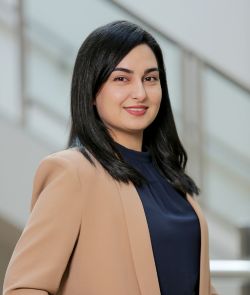
Dr. Niloofar Akbarian
Dr. Niloofar Akbarian is a postdoctoral research fellow at The University of British Columbia with a PhD in Mechanical and Industrial Engineering. Her research focuses on developing a risk-aware decision-making tools for sustainable supply chains. She has led multiple industry-partnered projects funded by the MITACS Accelerate and Circular Economy Seed Funding program. In Feb. 2025, she successfully delivered this micro-credential course, combining hands-on SimaPro training with real-world industry case studies. Now in its second year, she leads the course, introducing advanced topics in circularity such as sustainability quantification and scenario modeling under uncertainty. She holds certifications from the American Center for Life Cycle Assessment (ACLCA) and One Click LCA, and her teaching approach equips participants with actionable tools to apply circular economy principles in industrial settings.
Program Developers
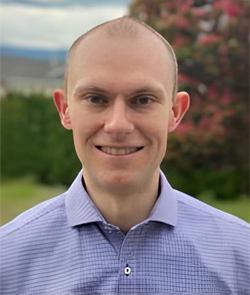
Dr. Bryn Crawford
Dr. Bryn Crawford is a Research Engineer and Program Manager at The University of British Columbia’s Materials and Manufacturing Research Institute (MMRI), responsible for establishing and coordinating circular economy-related R&D initiatives, particularly the PacifiCan-funded Accelerating Circular Economy (ACE) Platform. Bryn has experience working in both academic and industrial settings, executing over $20M of projects. The former largely in research centers collaborating with industry to solve technical barriers for introducing new products, materials, and processes, as well as root-cause analysis and continuous improvement projects. In this micro-credential, Bryn will be using his expertise in circular economy models and technological solutions to support learners throughout the course and for potential future collaborations.
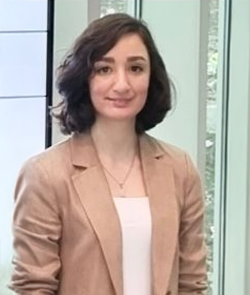
Mahsa Mohammadi
Mahsa Mohammadi is an operations and data analytics mentor in the Industrial and System Engineering lab at The University of British Columbia (Okanagan) and a lecturer in the Shannon School of Business at Cape Breton University. Her expertise includes operations and supply chain analytics, life cycle assessment, strategic sustainable development, and the circular economy. Mahsa’s research interests include urban logistics, transportation planning, disaster management, AI and blockchain technology, and decision support systems. In this micro-credential, Mahsa will deliver content and support learners, particularly on topics related to her domain expertise.
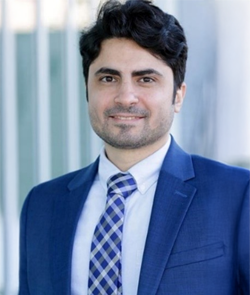
Dr. Babak Mohamadpour
Dr. Babak Mohamadpour is an Assistant Professor in the Faculty of Applied Science at the University of British Columbia (Okanagan). Prior to joining UBC, Dr. Tosarkani was an Assistant Professor of Operations Research and Management Science at Shannon School of Business, Cape Breton University where he taught Operations Management, Logistics & Transportation, Quantitative Methods, and Computers in Business. He has developed integrated methodologies to configure facility location models in different sectors, such as manufacturing, healthcare, energy, and agriculture. In this micro-credential program, Dr. Tosarkani brings his expertise in business modelling and life-cycle assessments to help learners design and analyze different value chain arrangements towards optimizing their implementation in a circular context.
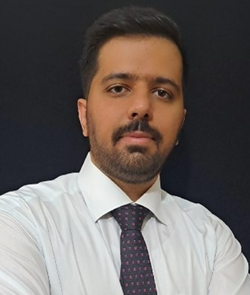
Mohsen Roytvand Ghiasvand
Mohsen Roytvand Ghiasvand is a Ph.D. student in Mechanical Engineering at The University of British Columbia – Okanagan Campus. His research focuses on Data-driven Decision Making, Optimization Under Uncertainty, Supply Chain Management, Transportation Planning, and Economic Feasibility Studies. Mohsen is particularly interested in applying optimization techniques to solve complex problems in transportation and logistics while incorporating economic analysis to assess the feasibility and cost-effectiveness of proposed solutions. His work provides practical insights into improving decision-making processes in supply chains and transportation networks, contributing to more efficient and sustainable operations in various industries.
Upon successful completion of all program requirements, learners are awarded a UBC Okanagan Letter of Proficiency (a non-credit credential).
The credential is provided in paper format. Learners will also receive a verifiable digital badge (which has descriptive metadata about the learning achievement) for sharing through digital channels.